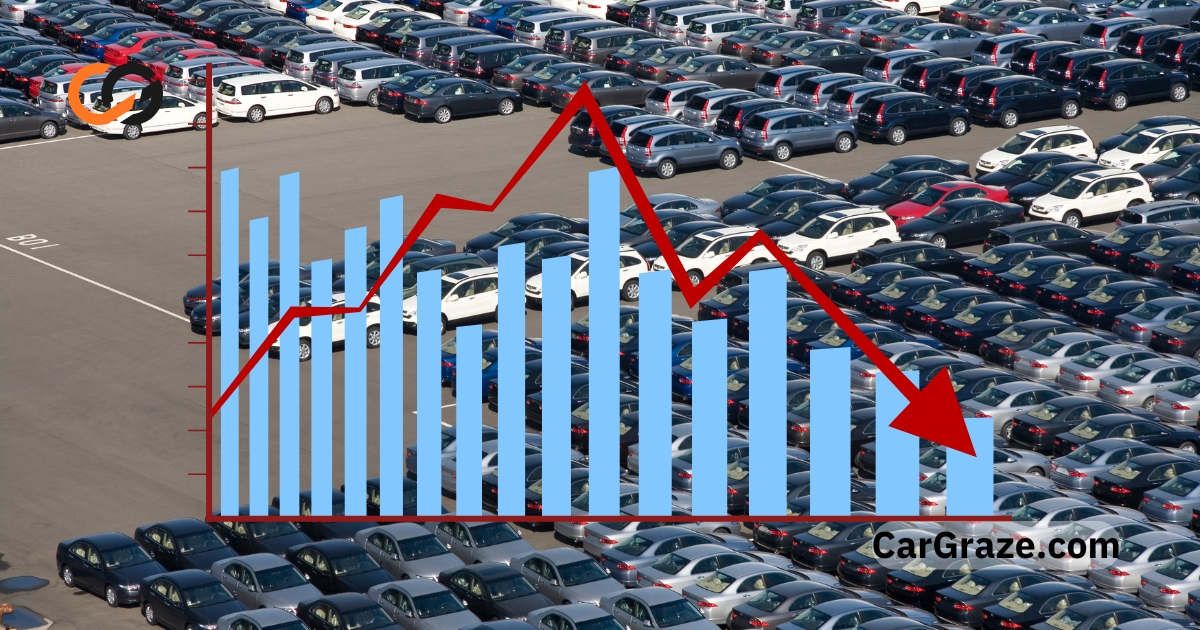
Car Sales Dip Amid Festive Season: What's Driving This Decline?
As India’s festive season swings into full gear, many business owners are gearing up for high demand and good profits. However, this Diwali may be more about surplus inventory than celebrations for car dealerships. Despite stocking up in anticipation of higher sales, dealers struggle to attract buyers, leaving vehicles gathering dust on showroom floors.
The Stockpile Situation: Too Many Cars, Too Few Buyers
A report by the Economic Times reveals that car dealers are currently holding inventory that could last between 80 to 85 days, amounting to a massive ₹9,000 crore in value. This issue started even before September, with an estimated 800,000 unsold cars in dealer stock, worth approximately ₹77,000 crore.
Dealers were counting on the festive season to clear out these stocks, but with October almost over, the situation remains largely unchanged. Despite the festival buzz, customers are not rushing to purchase vehicles as expected.
Why Are Car Sales Lagging?
There are multiple reasons behind this slowdown, including:
1. Production Outpacing Demand
Auto companies continue to push more cars to dealerships, expecting sales to spike. However, demand hasn't matched this influx. Since May, car inventories have steadily increased. Even during the festive season, sales saw a dip of 19% according to the Federation of Automobile Dealers Associations (FADA).
2. Economic Strain on Dealers
With unsold vehicles piling up, dealers are facing financial challenges. Managing cash flow has become a daunting task, especially as unsold inventories now range between ₹45,000 crore to ₹54,000 crore. Smaller vehicles, which traditionally had stable demand, are also part of the stockpile, forcing manufacturers to rethink their production strategies.
3. Shift in Consumer Preferences
Mid-range cars (₹10–25 lakh) had driven sales for the past two years, but demand has now plateaued. Premium cars still see some traction, but overall sales figures remain underwhelming despite discounts and new model launches.
4. Discounts Aren’t Enough
Dealers are trying to lure buyers with heavy discounts, particularly on SUVs and newly launched models. However, the sales boost hasn’t been significant. Some brands are offering free insurance and extended warranties, but these efforts seem insufficient in reviving the market.
Industry Optimism: A Turnaround on the Horizon?
Despite the current slump, auto industry experts remain cautiously optimistic. C.S. Vigneswar, President of FADA, expressed hope that the situation will normalize. He believes sales will extend into November, with the final days of October potentially seeing more stock clearance.
Additionally, auto companies like Maruti Suzuki and Tata Motors are introducing new models to attract buyers. Premium SUVs and electric vehicles, such as the Tata Nexon EV and Punch EV, are seeing demand rise, suggesting that some segments are still thriving.
What’s Holding Buyers Back?
Several factors have contributed to the lukewarm response from buyers:
- Election Impact: The market tends to slow during election periods, and the recent elections may have contributed to consumer hesitancy.
- Climate Disruptions: In southern and eastern regions, heavy rainfall and floods have deterred buyers. Kerala and Telangana, for example, have seen demand fall due to extreme weather.
- Price Expectations: With dealers offering price cuts, many buyers are delaying purchases, hoping for even better deals in the future.
Is This the Best Time to Buy a Car?
For those considering a vehicle purchase, this might be an opportune moment. Dealers are eager to clear old stock, offering discounts and incentives. Whether it’s older models at reduced prices or new models catching consumer interest, there are plenty of options to explore.
Conclusion: Will the Market Rebound?
The coming months will determine whether the auto market can recover from this dip. As the festive season draws to a close, dealers are racing to manage inventory and cash flow. The situation underscores the need for better coordination between manufacturers and dealers to align production with demand.
While some experts remain hopeful for a rebound, it’s clear that auto companies must adapt their strategies to avoid similar issues in the future. For now, customers can take advantage of discounts and deals - perhaps making this festive season the right time to drive home a new car.
What are your thoughts about the automobile industry!? Write in the comments below.



Comments